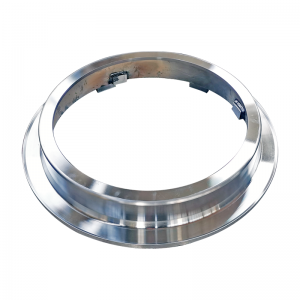- Afrikaans
- Albanian
- Amharic
- Arabic
- Armenian
- Azerbaijani
- Basque
- Belarusian
- Bengali
- Bosnian
- Bulgarian
- Catalan
- Cebuano
- China
- China (Taiwan)
- Corsican
- Croatian
- Czech
- Danish
- Dutch
- English
- Esperanto
- Estonian
- Finnish
- French
- Frisian
- Galician
- Georgian
- German
- Greek
- Gujarati
- Haitian Creole
- hausa
- hawaiian
- Hebrew
- Hindi
- Miao
- Hungarian
- Icelandic
- igbo
- Indonesian
- irish
- Italian
- Japanese
- Javanese
- Kannada
- kazakh
- Khmer
- Rwandese
- Korean
- Kurdish
- Kyrgyz
- Lao
- Latin
- Latvian
- Lithuanian
- Luxembourgish
- Macedonian
- Malgashi
- Malay
- Malayalam
- Maltese
- Maori
- Marathi
- Mongolian
- Myanmar
- Nepali
- Norwegian
- Norwegian
- Occitan
- Pashto
- Persian
- Polish
- Portuguese
- Punjabi
- Romanian
- Russian
- Samoan
- Scottish Gaelic
- Serbian
- Sesotho
- Shona
- Sindhi
- Sinhala
- Slovak
- Slovenian
- Somali
- Spanish
- Sundanese
- Swahili
- Swedish
- Tagalog
- Tajik
- Tamil
- Tatar
- Telugu
- Thai
- Turkish
- Turkmen
- Ukrainian
- Urdu
- Uighur
- Uzbek
- Vietnamese
- Welsh
- Bantu
- Yiddish
- Yoruba
- Zulu
Nov . 18, 2024 10:01 Back to list
Exploring the World of Die Casting Manufacturing Facilities and Their Innovations
The Importance of Die Casting Factories in Modern Manufacturing
Die casting is a crucial manufacturing process that has significantly advanced the production of metal parts across various industries. Die casting factories play a pivotal role in this method, which involves forcing molten metal into a mold cavity to create intricate shapes and components. This article explores the importance of die casting factories, their processes, benefits, and the sectors they serve.
The Die Casting Process
The die casting process begins with the melting of metal, commonly aluminum, zinc, magnesium, or copper. Once the metal reaches a molten state, it is injected into a pre-designed mold under high pressure. The mold, made from hardened steel, is designed to withstand the extensive force and heat involved in the process. After the molten metal cools and solidifies, the mold opens, and the finished piece is ejected. This process allows for high precision and the ability to create complex shapes that would be difficult or impossible with other manufacturing methods.
Types of Die Casting
Die casting is primarily divided into two types hot chamber and cold chamber die casting. Hot chamber die casting is typically used for metals with low melting points, such as zinc, where the injection mechanism is immersed in the molten metal. Conversely, cold chamber die casting is used for metals with higher melting points, such as aluminum, where the molten metal is poured into the injection chamber from a separate furnace.
Benefits of Die Casting Factories
die casting factories

One of the primary benefits of die casting factories is the efficiency of mass production. These facilities can produce thousands of identical parts in a short time frame, reducing labor costs and production time. Additionally, the process minimizes waste, as the precision of die casting means that less material is lost compared to other methods, such as machining. Moreover, finished die-cast products often require little to no further processing, which translates to additional cost savings.
Die casting also provides excellent dimensional accuracy and surface finish, making it a preferred choice for manufacturers requiring high-quality components. The ability to include intricate designs and features, such as threading and logos, adds to the versatility of die cast parts, meeting diverse customer requirements.
Applications Across Industries
Die casting factories cater to a wide range of industries, including automotive, aerospace, electronics, and consumer goods. In the automotive sector, for instance, die casting is used to produce engine blocks, transmission cases, and other critical components. The aerospace industry relies on die casting for lightweight and robust parts that adhere to strict safety regulations. Furthermore, the electronics sector benefits from die casting in the production of housings and heat sinks, which require precise construction for optimal performance.
Conclusion
In summary, die casting factories are integral to modern manufacturing, providing an efficient, cost-effective, and high-quality method for producing metal parts. Their ability to create complex shapes with remarkable precision makes them indispensable to a variety of industries. As technology continues to evolve, die casting is expected to play an even more significant role in innovative manufacturing solutions, shaping the future of production across the globe. The impact of die casting factories on the economy and technological advancement cannot be overstated, as they continue to meet the growing demands of diverse markets.
-
8mm Thin-Walled Cast Steel Manhole Cover Pallet Bottom Ring | Durable
NewsAug.04,2025
-
Premium Cast Iron Water Main Pipe: Durable, Corrosion-Resistant
NewsAug.03,2025
-
Durable Cast Iron Water Mains | AI-Optimized Systems
NewsAug.02,2025
-
High-Efficiency Propane Boiler for Baseboard Heat | Save Energy
NewsAug.01,2025
-
Premium Source Suppliers for Various Gray Iron Castings
NewsJul.31,2025
-
Durable Cast Iron Water Main Pipes | Long-Lasting
NewsJul.31,2025


